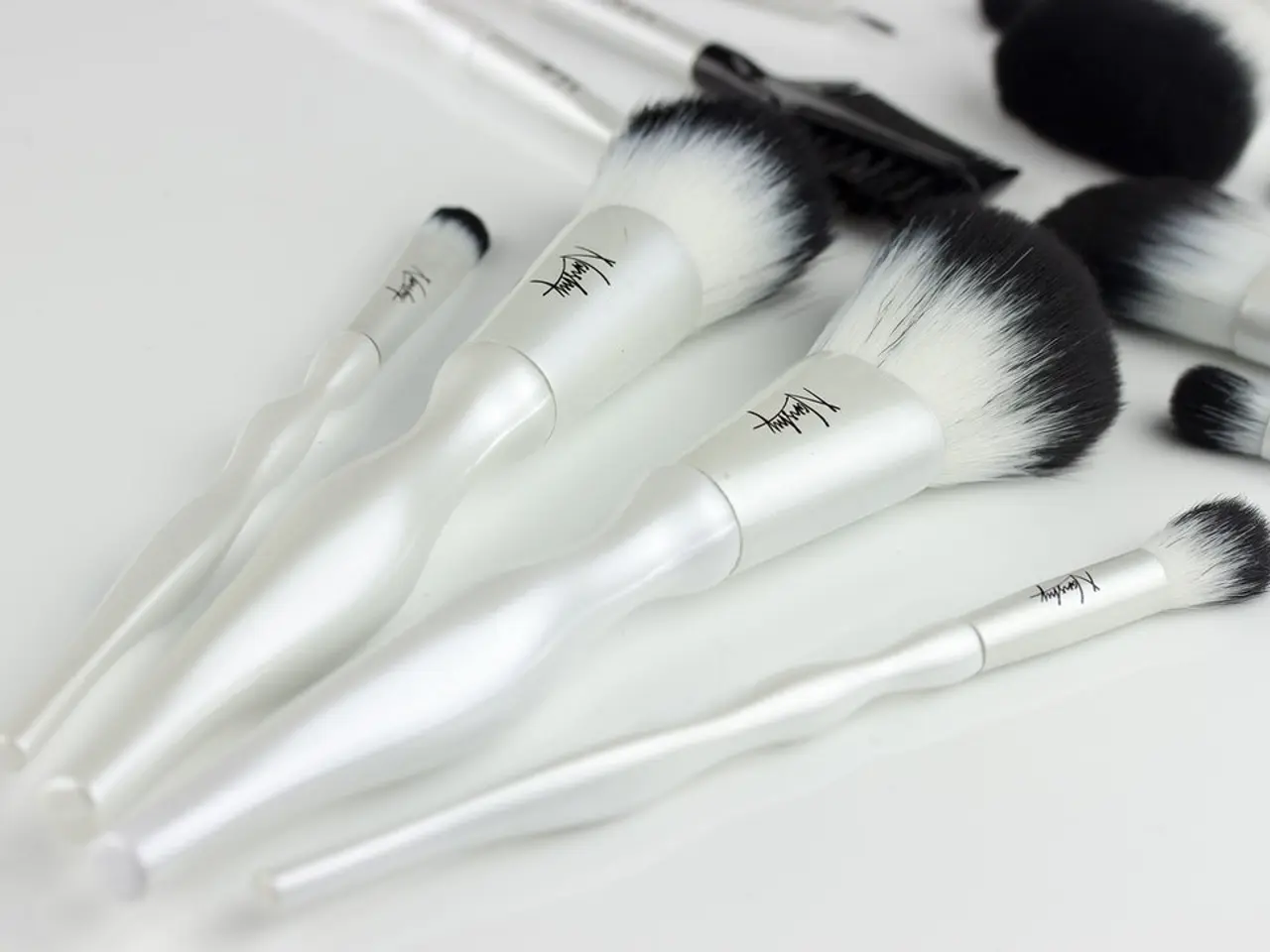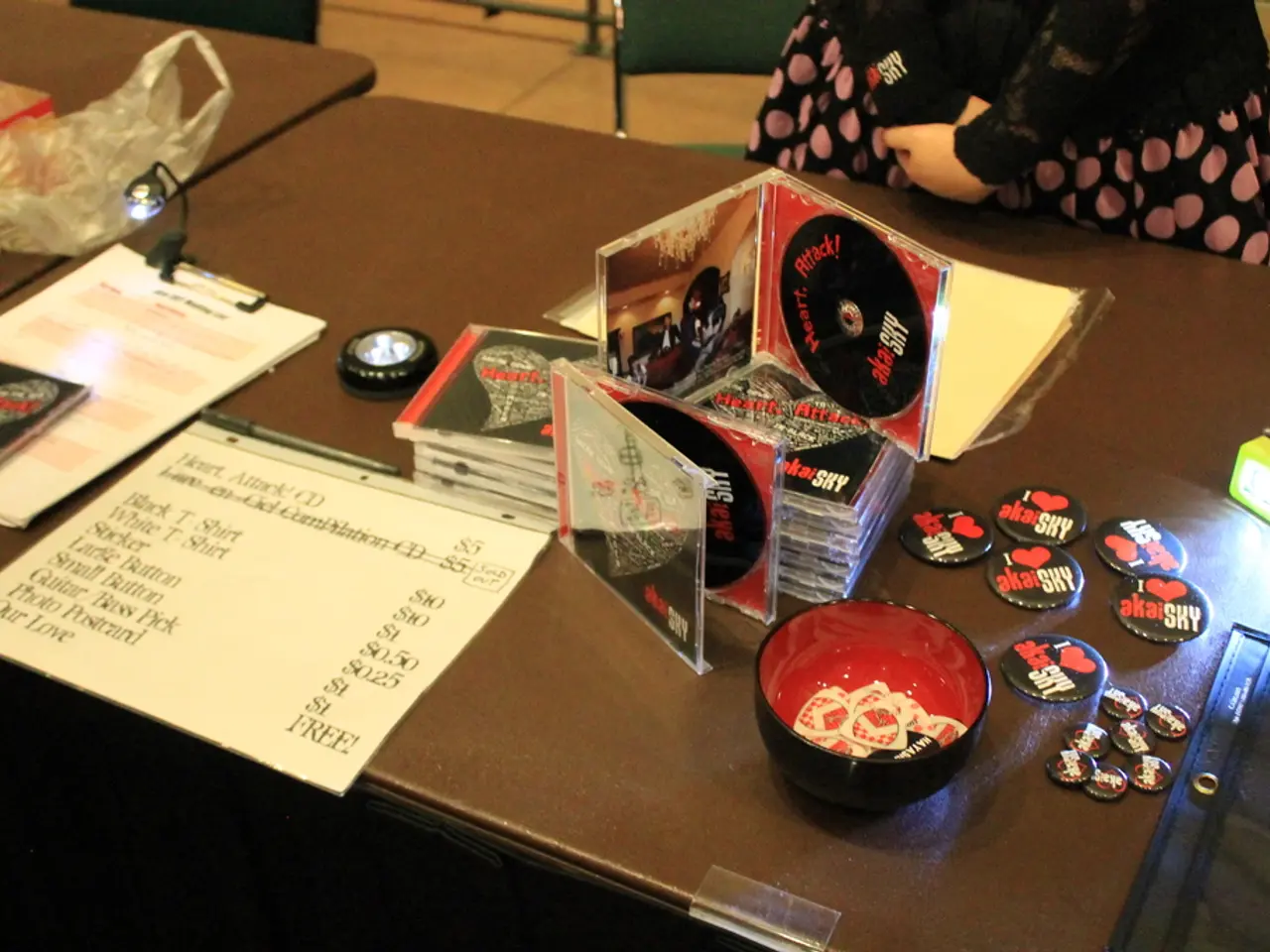Transform your beauty practices eco-friendly this year with our comprehensive guide highlighting the most sustainable brands and products
In the realm of beauty, sustainability is no longer a luxury but a necessity. Brands are stepping up to the challenge, and the UK is leading the way with several companies prioritizing eco-friendly practices and ethical standards.
One such pioneer is UpCircle Beauty, which has made a name for itself by recycling food waste into skincare products. UpCircle is not just plastic-negative, but also B Corp certified and committed to transparency. They use refillable or recycled packaging, making sustainability approachable for all.
Botanicals Organic Skincare, another UK-based brand, is Soil Association-certified organic and focuses on natural, therapeutic skincare products. Their commitment to the environment is evident in their handmade, vegan-friendly products and their use of glass or aluminium packaging.
Evolve Organic Beauty is known for its 99%+ natural ingredients and cruelty-free formulas. Their packaging is made from recycled and sugarcane-derived materials, and they are B Corp certified, producing their products in small batches in Hertfordshire.
Nakin Skincare specializes in natural anti-aging products with an emphasis on ethical production, plant-based ingredients, and recyclable packaging. They strive to minimise their environmental impact while offering effective skincare solutions.
Other UK brands with sustainable credentials include Green People, Weleda, and Baie Botanique, which emphasise natural and organic formulations. Large multinational companies like Unilever are also promoting sustainability, though the specifics vary by brand.
Pai, a sustainable beauty brand, is reducing waste by introducing recycled material into over 80% of their retail tubes. Their cream cleanser, specially formulated for sensitive skin, is enriched with camellia and is vegan and cruelty-free.
Caudalie is another brand making waves in the sustainable beauty scene. They have created high factor sunscreens that are biodegradable, non-toxic to the marine ecosystem, and avoid harmful ingredients.
The luxury brand L'Occitane offers an essential oil-rich cream for fighting signs of aging, made with Immortelle Super Extract, a 100% natural alternative to Retinol. The daily moisturizer features sea kelp, sustainably harvested by hand, and supports conservation projects around the world through the Blue Heart Oceans Fund.
In the oral care industry, an electric toothbrush with brush heads made from corn starch and bristles made from castor oil is leading the way. Meanwhile, The Body Shop's Ginger Anti-Dandruff Shampoo is vegan, made with 90% ingredients of natural origin, and packaged in 100% recycled plastic.
Fragrance has also entered the refillable beauty brand space, with brands like Lush offering bath bombs created without packaging and providing an ingredient map for transparency.
The move towards sustainable living and eco-friendly beauty is significant, with 64% of consumers looking for products with recyclable packaging and 79% of people more likely to buy a product if it says 'organic'. Investing in a bathroom recycling bin and choosing glass and aluminium over plastic packaging can help reduce waste.
In the future, platforms like Loop, a global shopping platform that works with retailers to reduce recycling and single-use plastic, could play a crucial role in promoting sustainability in the beauty industry. Conserving Beauty, which works with a number of organisations to ensure ethical and sustainable usage of water, raw materials, supply chains, animal protection, and human rights, is another step in the right direction.
As more brands embrace sustainability, the future of beauty looks greener and more ethical.
- UpCircle Beauty, a pioneer in sustainable fashion, recycles food waste into skincare products, making it plastic-negative and B Corp certified.
- In the realm of education-and-self-development, consumers are increasingly seeking products with recyclable packaging, with 64% looking for such products.
- Botanicals Organic Skincare, a UK-based brand, is Soil Association-certified organic and focuses on natural, therapeutic skincare products, using handmade, vegan-friendly products and glass or aluminium packaging.
- Nakin Skincare, specializing in natural anti-aging products, minimizes its environmental impact while offering effective skincare solutions, using plant-based ingredients and recyclable packaging.
- Entertainment through sustainable beauty is being popularized by brands like L'Occitane, which offers an essential oil-rich cream for fighting signs of aging, made with a 100% natural alternative to Retinol and supports conservation projects.
- In the realm of entertainment, platforms like Loop, a global shopping platform that works with retailers to reduce recycling and single-use plastic, could promote sustainability in the beauty industry alongside organizations like Conserving Beauty.




